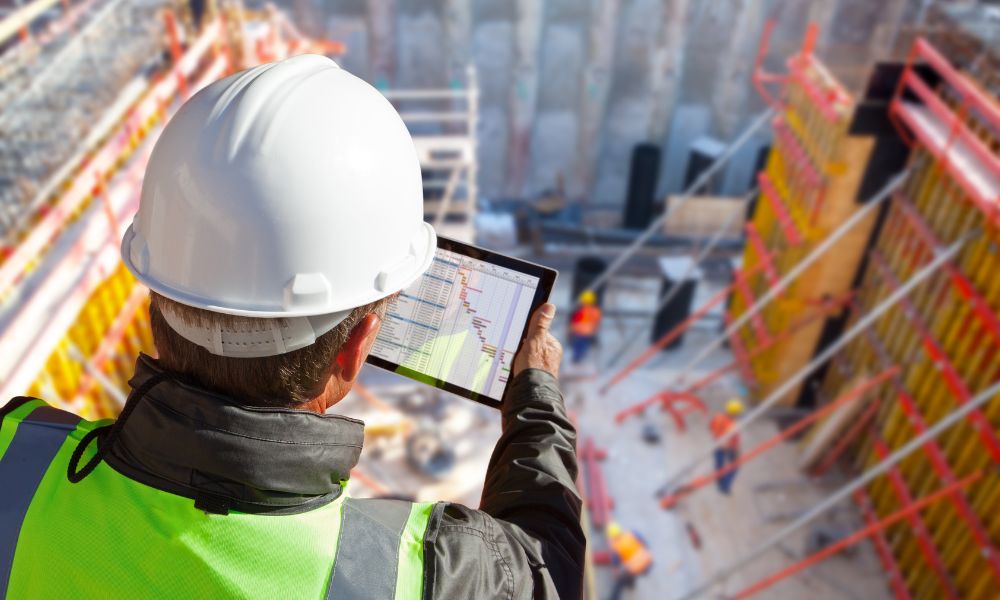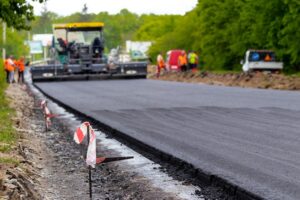Revolutionizing Road Construction: How These Services Are Transforming Our Infrastructure
Road construction plays a crucial role in developing and maintaining our infrastructure. Over the years, advancements in technology and innovative approaches have revolutionized the way roads are built. This article explores the transformative services that are reshaping the road construction industry, addressing the challenges of traditional methods and embracing new opportunities.
Roads are the lifelines of transportation networks, facilitating economic growth, and connecting communities. However, traditional road construction methods have often been slow, resource-intensive, and prone to delays. The need for more efficient, sustainable, and cost-effective solutions has led to the emergence of revolutionary road construction services.
The Need for Road Construction
Before delving into the advancements in road construction, it is essential to understand why road construction is vital. Road networks are essential for transportation of goods, services, and people, enabling economic activities and social interactions. They are crucial for industries, commerce, and tourism, contributing to overall development and progress.
Challenges in Traditional Road Construction
Traditional road construction methods have faced several challenges that hinder efficient and timely completion. These include issues such as limited durability, high maintenance costs, long construction times, and disruption to traffic flow. Additionally, environmental concerns, such as excessive energy consumption and carbon emissions, have raised the need for more sustainable approaches.
Revolutionizing Road Construction Services
Technological Advancements
The integration of cutting-edge technologies has transformed road construction processes. Innovations such as GPS surveying, drones, and advanced software enable precise measurements, efficient planning, and improved project management. Real-time data collection and analysis help optimize operations, leading to enhanced productivity and reduced costs.
Modular Construction
Modular construction techniques involve prefabricating road sections off-site and assembling them on-site. This approach improves efficiency, as modular elements can be produced concurrently with on-site preparations. Prefabricated components offer higher quality control, faster installation, and minimal disruption to traffic during construction.
Sustainable Materials
Sustainability has become a key focus in road construction. The use of recycled materials, such as reclaimed asphalt pavement and recycled concrete aggregate, reduces waste and conserves natural resources. Additionally, innovative materials like permeable pavement enhance stormwater management and reduce the impact on the environment.
Automation and Robotics
Automation and robotics have revolutionized various industries, and road construction is no exception. Robotic machines and autonomous vehicles are being employed for tasks like excavation, asphalt paving, and road marking. These technologies increase precision, speed up processes, and improve worker safety.
Data Analytics
The availability of vast amounts of data has opened up opportunities for data analytics in road construction. By analyzing data collected from sensors, cameras, and other sources, data analytics can provide valuable insights for optimizing road construction projects. Predictive analytics can help identify potential issues, optimize resource allocation, and improve overall project efficiency. Data-driven decision-making enables road construction companies to make informed choices and mitigate risks.
3D Printing
One of the most exciting advancements in road construction is the use of 3D printing technology. 3D printers can create intricate road structures layer by layer, reducing the need for manual labor and traditional construction techniques. This innovative approach allows for the customization of road designs and the utilization of sustainable materials. 3D-printed roads offer increased durability, reduced maintenance costs, and improved longevity.
Benefits of Modern Road Construction
The revolutionizing road construction services bring a multitude of benefits to infrastructure development:
- Enhanced Efficiency: Technological advancements and innovative approaches streamline construction processes, reducing time and cost requirements.
- Improved Durability: The use of sustainable materials, modular construction, and advanced techniques result in roads that are more resilient and long-lasting.
- Minimized Disruption: Prefabricated sections, automation, and efficient planning minimize disruption to traffic during construction, reducing inconvenience for commuters.
- Environmental Sustainability: Embracing sustainable materials, energy-efficient solutions, and reduced carbon emissions contribute to a greener and more eco-friendly infrastructure.
- Increased Safety: Automation and robotics minimize risks associated with manual labor, ensuring worker safety and reducing accidents on construction sites.
Case Studies
Examining real-world examples of revolutionizing road construction company provides insights into their practical applications and benefits:
Smart Highways
Smart highways incorporate innovative features such as intelligent lighting, interactive signage, and in-road charging for electric vehicles. These technological advancements enhance safety, provide real-time traffic information, and promote sustainable transportation.
Prefabricated Road Sections
Prefabricated road sections, produced off-site and assembled on-site, have been successfully implemented in various projects. This approach reduces construction time, improves quality control, and minimizes traffic disruptions.
Energy-Generating Roads
Energy-generating roads utilize solar panels and kinetic energy harvesting systems embedded in the pavement. These roads generate clean energy, contributing to sustainable infrastructure and reducing dependence on fossil fuels.
Future of Road Construction
The future of road construction holds immense potential for further advancements. Emerging technologies like artificial intelligence, Internet of Things (IoT), and advanced materials will continue to shape the industry. Smart infrastructure, autonomous vehicles, and self-healing roads are among the exciting developments on the horizon.
Conclusion
Revolutionizing road construction services are transforming the way we build and maintain our infrastructure. With technological advancements, sustainable practices, and innovative approaches, road construction becomes more efficient, durable, and environmentally friendly. Embracing these services will lead to enhanced infrastructure development, improved transportation networks, and a sustainable future.
FAQs
Q1: How do technological advancements benefit road construction?
Answer: Technological advancements improve efficiency, precision, and project management in road construction. They enable real-time data collection, optimize resource allocation, and reduce construction time.
Q2: Are revolutionizing road construction services cost-effective?
Answer: While initial investments may be higher, revolutionizing road construction services often offer long-term cost savings. Factors such as reduced maintenance, increased durability, and minimized disruptions contribute to overall cost-effectiveness.
Q3: How can road construction become more sustainable?
Answer: Road construction can become more sustainable by utilizing recycled materials, implementing energy-efficient technologies, and adopting eco-friendly practices. The focus is on reducing waste, conserving resources, and minimizing environmental impact.
Q4: What are the safety benefits of automation in road construction?
Answer: Automation in road construction reduces risks associated with manual labor, ensuring worker safety.



